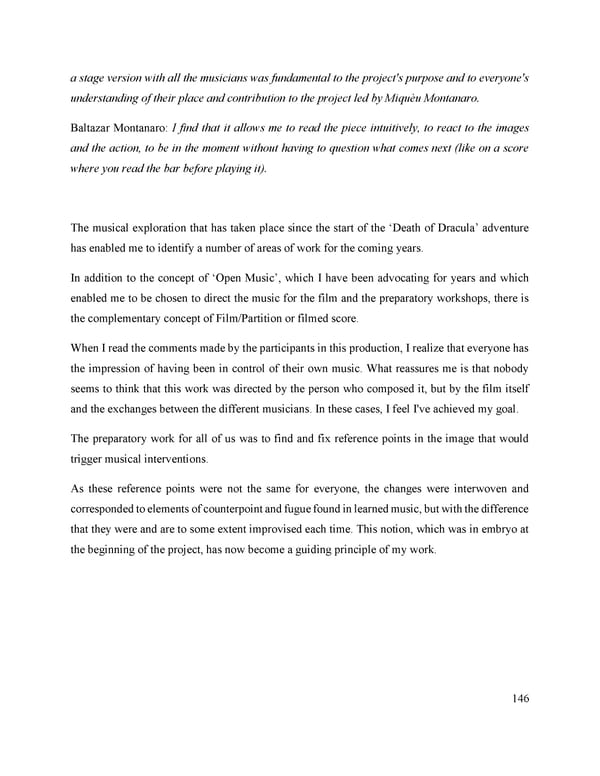a stage version with all the musicians was fundamental to the project's purpose and to everyone's understanding of their place and contribution to the project led by Miquèu Montanaro. Baltazar Montanaro: I find that it allows me to read the piece intuitively, to react to the images and the action, to be in the moment without having to question what comes next (like on a score where you read the bar before playing it). The musical exploration that has taken place since the start of the ‘Death of Dracula’ adventure has enabled me to identify a number of areas of work for the coming years. In addition to the concept of ‘Open Music’, which I have been advocating for years and which enabled me to be chosen to direct the music for the film and the preparatory workshops, there is the complementary concept of Film/Partition or filmed score. When I read the comments made by the participants in this production, I realize that everyone has the impression of having been in control of their own music. What reassures me is that nobody seems to think that this work was directed by the person who composed it, but by the film itself and the exchanges between the different musicians. In these cases, I feel I've achieved my goal. The preparatory work for all of us was to find and fix reference points in the image that would trigger musical interventions. As these reference points were not the same for everyone, the changes were interwoven and corresponded to elements of counterpoint and fugue found in learned music, but with the difference that they were and are to some extent improvised each time. This notion, which was in embryo at the beginning of the project, has now become a guiding principle of my work. 146
 Lost Analogue: Exploring Film, Music, and Interdisciplinary Methods in Education Page 146 Page 148
Lost Analogue: Exploring Film, Music, and Interdisciplinary Methods in Education Page 146 Page 148